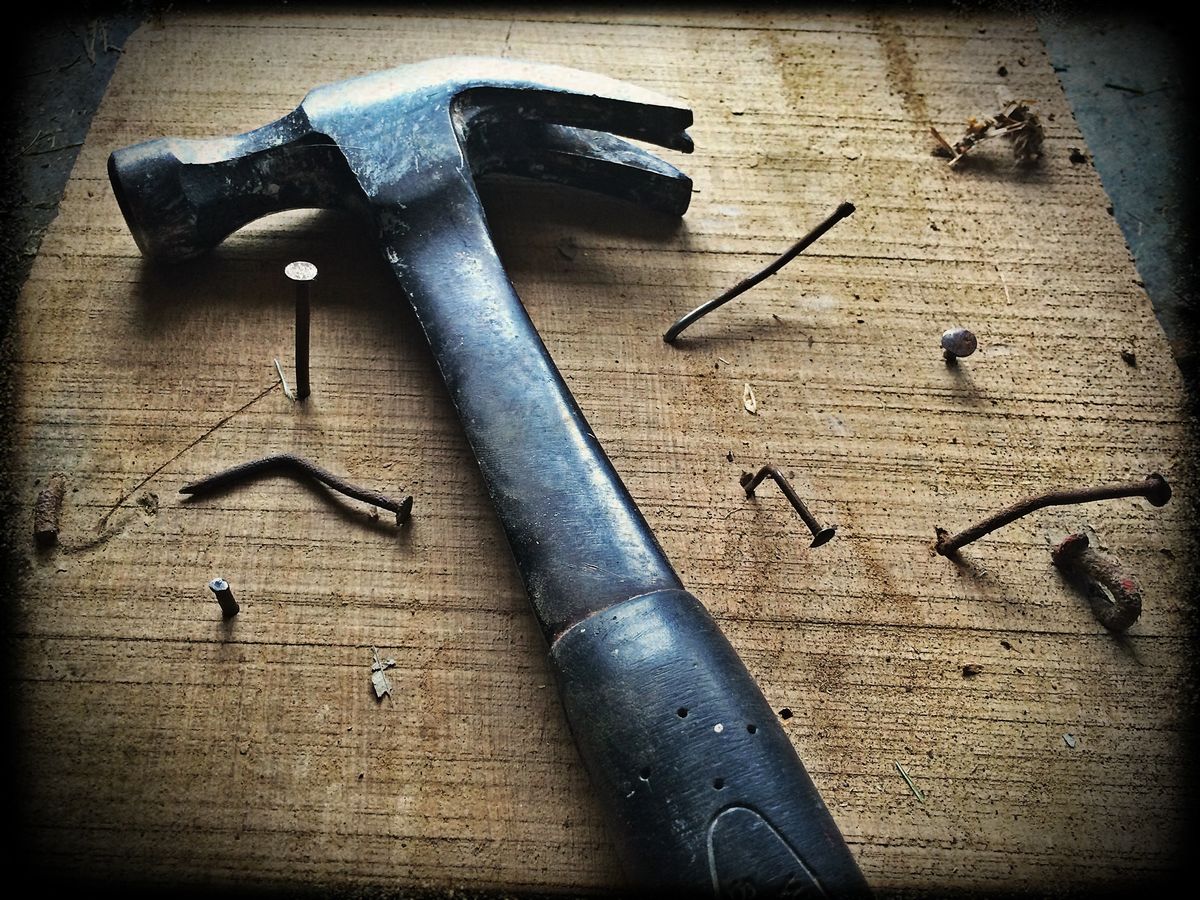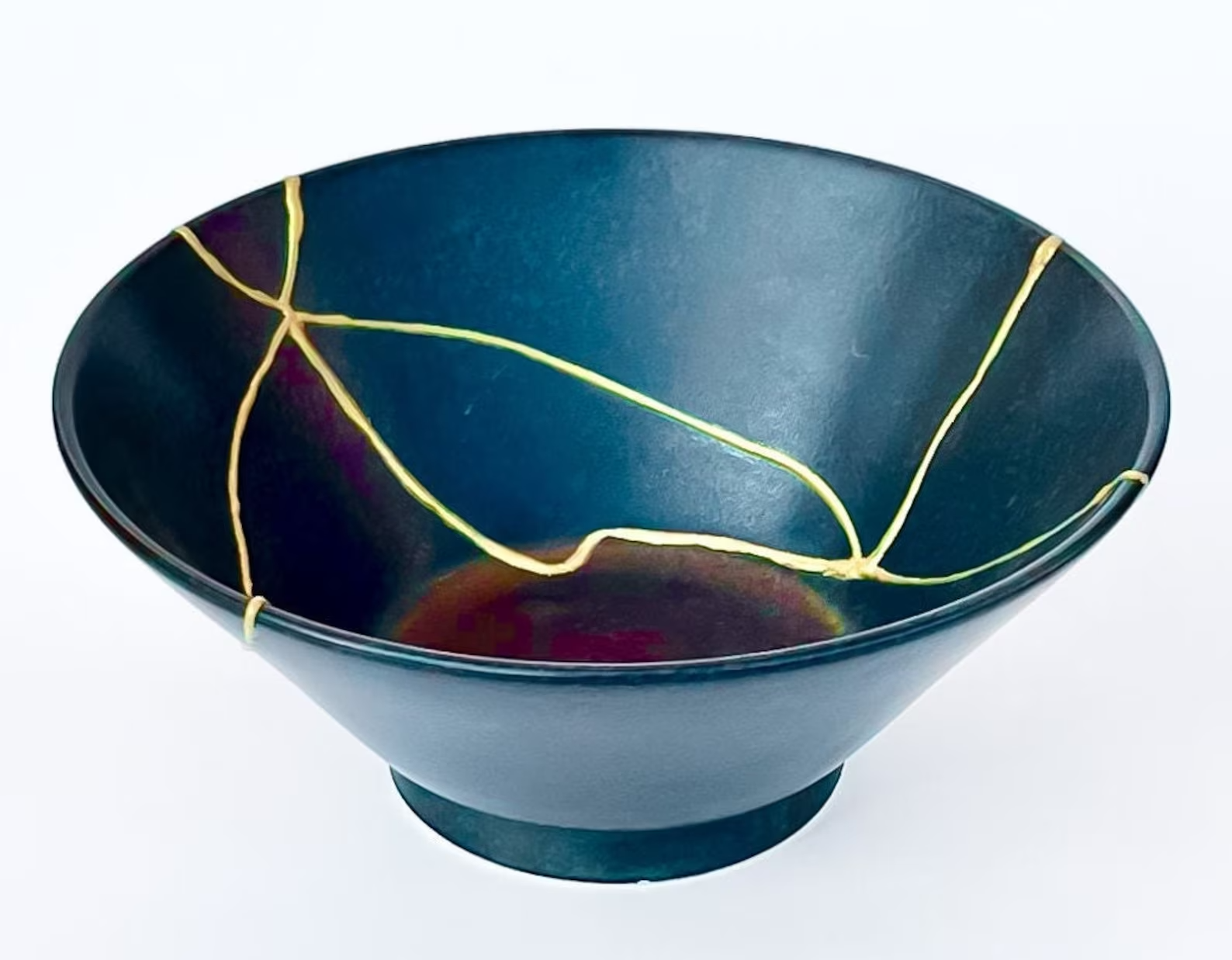Broken Pieces
"There this idea that we all have our broken pieces. What frightens and exhilarates and inspires us, are close together. Those feelings are what drives us to risk, in life and in love. Everybody’s broken in some way. " - Bruce Springsteen, Western Stars

Is it just me, or do things seem exhausting lately?
Between the extreme weather events, never ending US political drama, and the horrible atrocities of war in the Ukraine and in the Middle East , it's a lot.
Toss in technology layoffs, a (seemingly) never-ending debate on 'return to office' vs. remote work, it's not surprising to me that many of my friends, as well as myself, are just feeling a sense of crazy exhaustion that I haven't ever experienced.
I was out to breakfast a few weeks ago with a friend. We were talking about this phenomenon, which is probably coupled with age... I want to spend less time in big, crowded spaces but more time with people from different backgrounds who are more interested in having conversations rather than idle chit-chat.
I've written before about gathering:
I've been actively forcing myself to embrace some of these personality quirks and re-casting them into strengths by leaning into them as a way to try and establish a different way of thinking. Perhaps it's part of my post-second-heart-attack mindset around 'life 2.0', but the concept of gathering has become a new thing that is unique and vital to my well-being.
But my trek to the Do Wales conference solidified this idea around spending more purposeful time doing things that help inspire more purposeful thinking.
As I try to process all of this, I keep coming back to the Japanese art of kintsugi. Kintsugi, roughly translated as 'joining with gold,' is a centuries-old repair technique which uses urushi (Japanese lacquer) dusted with powdered gold, to restore broken ceramic and porcelain vessels.
Rather than masking fractures, kintsugi highlights them with gold to tell an object's story. Items which have been restored using the kintsugi technique are often considered even more precious than they were before.
It may be a stretch, but symbolically, I've started to think more about this and how it can be applied to the challenges and craziness of everyday existence.

Here are a couple of thoughts on how I've been noodling about it:
- Embrace imperfections. Similar to how Kintsugi views cracks and flaws as valuable, embrace your imperfections and see them as part of your unique story.
- Seek opportunity in chaos. Just as kintsugi adds gold to showcase beauty amidst cracks, explore how that chaos and craziness can present opportunities for self-discovery and resilience.
- Rebuilding. Like the deliberate and careful restoration in kintsugi, approach rebuilding after failures or challenges with mindfulness, self-compassion, and an intention to create something even stronger and more beautiful.
- Strength in vulnerability. Kintsugi not only repairs pottery but also highlights vulnerability. Recognize that acknowledging your vulnerabilities can be a source of strength and invite deeper connections.
- Cultivating resilience. Kintsugi reflects the idea of transforming brokenness into resilience and beauty. Apply this philosophy by cultivating resilience within yourself.
I hope this helps you navigate the mental toll in some way. As always, I'm still a work in progress, and I use this space for my self-therapy as I work through things. :)
Wrapping up, I've been thinking a lot lately about my writing and what being online really is. While I'm done mainly with most social media (and have found a lovely home on Mastodon), I want to shake things up a bit with these posts.
I want to be more thoughtful about reading and writing online. Inspired by that brilliant post on the issues of social media exchanges:
I believe it points to something larger: a fundamental thoughtfulness difference between writing rapid short-form posts (whether tweets or toots) and medium or longer-form writing (on blogs or journals), and the impact of that difference on readers: that the act of reading more thoughtful writing nudges & reinforces a reader into a more thoughtful state of mind.
It resonates with me after three solid years of almost weekly writing.
On that, I decided to take a slight writing hiatus while I figure out changes to this blog/newsletter.
I always find that change is good, and it keeps things fresh. If you have ideas, let me know! Do you like getting posts via email? Do you enjoy the links section? I'm curious about what's driving people to read these self-reflections.
In any case, I'll post again in a few weeks.
And in the words of Arnold Schwarzenegger, I want to 'be useful', in whatever online form that takes.
(Also - check out the interview with him on NPR if this embedded clip below doesnt work)
If you enjoy these posts, you can buy me a coffee ☕️, check out my store or just share my work. If you'd rather just keep up with my daily ramblings, follow me via your favorite RSS reader, via Mastodon or keep reading my posts on this blog. Your support is much appreciated!
Mind Benders 🤯
Quotables 📚
One of the highlights of Do Wales 2023 for me was this heart inspired talk from Nutritional Therapist, Sarah Bayliss. "Do Be Myself" is one of those few, raw, and pure emotional conversations that just sticks with you.
My weakness makes me powerful when I accept it. When I fully immerse myself in what I love, my limiting beliefs disappear.

I feel incredibly luck to have been there as Sarah opened up to the room; it was an incredibly powerful moment that I'll never forget. Give it a watch, I think you'll be moved.
Brain Dump 🧠
Here are a few articles and videos that resonated with me over the last week:
- Alan tackled the Wonderland Trail a few weeks back, and I enjoyed his walkabout trip report. I always enjoy hiking as a form of deeper thinking/meditation, but his 90-mile trek is one of which bucket lists are made. — [via Wonderland]
- While I've enjoyed the idea of "inbox zero" for many years, one of the fundamental problems with it is that you need to respond quickly. Over the years, I've realized that, more often than not, it's too quick. I need to take a step back and only sometimes answer fast. And, as this article teases, 'often, the easiest way to solve a problem is to wait until you realize that you don't have one.' Yes! Some problems solve themselves, and some solutions make things worse. — [via Solve Your Problems by Doing Nothing]
- If you have done any writing, then you are familiar with Lorem Ipsum, placeholder text used to demonstrate a document's visual form without any real meaning. But I didn't know its origin from the sixteenth century until now. — [via The Story of Lorem Ipsum: How Scrambled Text by Cicero Became Used by Typesetters Everywhere]
- Look, I love my Apple Watch Ultra 2, but I'm not going after it if, for some reason (how!?), it falls into the opening in an outhouse. Side note: the new WatchOS 10 face, Modular Ultra, is fantastic. — [via Woman rescued from outhouse toilet after climbing in to retrieve Apple Watch, Michigan police say]
- While we, as humans, think we want to avoid suffering, there's a surprising number of benefits from it. 'When you suffer, your brain does all sorts of useful things for you. It figures out what went wrong, adjusts your expectations, updates your beliefs, gives you an adrenaline jolt (if you're under threat), lowers your energy (if you're helpless), and recalibrates your motivations to the right level.' — [via You Want to Suffer]
- A common problem with the PKM (personal knowledge management) crowd is that too much time is spent on perfecting the tools and ecosystem to take notes rather than the act of, well, taking notes. This post asks, 'At what point do the tools of writing go from functional objects to signifiers of being a writer without ever having to sit down and write?'; and the answer may surprise you — [via Do Writers Fetishize Their Tools Too Much... Or Not Enough?]
- I never heard of the term 'capital inefficiency,' but I certainly have felt it. John describes capital efficiency as 'a measure of how effectively a company uses its sources of capital to achieve its objectives, which may include growth, profitability, market share, and other strategic goals.', you can easily start to recognize how capital inefficiency "isn't just about where we've overspent relative to the outcome. It also relates to underinvestment AND the very nature of the outcomes we seek." Been there all too often. — [via Capital Inefficiency]
- As I wait for the 'Double Tap' update to be released, there's an older accessibility feature on the Apple Watch that you can turn on today to experience it. Called "Assistive Touch", it allows you to 'utilize a customizable, floating screen button and selective hand gestures' to perform certain actions. I turned on double pinch a week ago, and it's been a game-changer that I didn't expect. — [via How the Apple Watch changed my dog walks forever]
- I love talking about actions over words, and the Say/Do Ratio is a simple concept that provides all sorts of interesting lessons. — [via Say/Do Ratio]
- Moving this newsletter/blog off of Substack was one of my best choices; this post articulates some of the problems with Substack and the 'substack fatigue' we face today. — [via We need to talk about Substack]
- Greg Morris has a great post on trying new things and just being okay with accepting that many things in life are just "not for me." — [via It’s Not For Me]
This Weeks Vibe 🎸
I've been finally watching Game Of Thrones this summer/fall, and I was sent this crazy video of Game Of Thrones creator Dan Weiss, Tom Morello of Audioslave/Rage Against The Machine, Scott Ian of Anthrax, Nuno Bettencourt of Extreme, Brad Paisley, and Game Of Thrones composer Ramin Djawadi shred on the all-new Sigil Collection Guitars from The Fender Custom Shop.
Be well. ✌🏻

